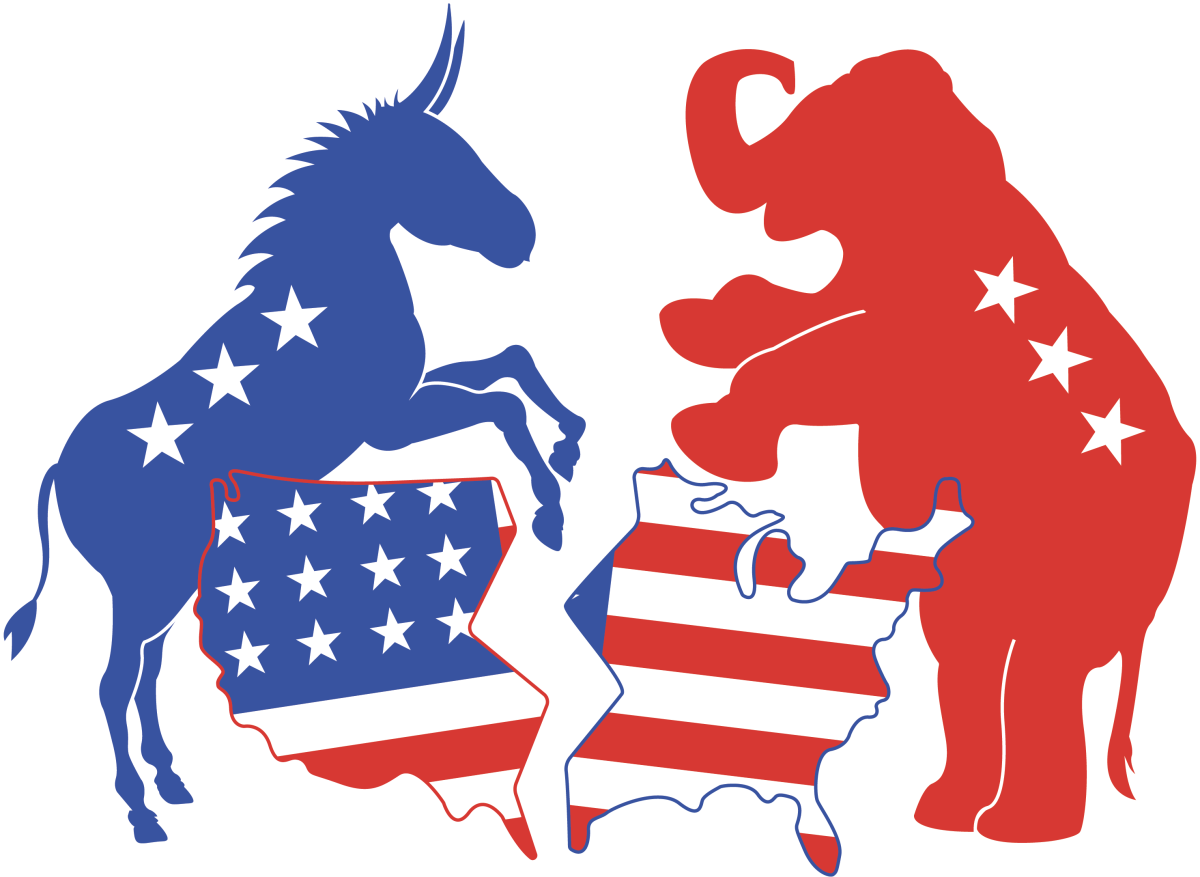“You’d let that idiot win?!”
“You’re betraying democracy!”
“You call yourself left-leaning?”
“If you’re not with me, you’re my enemy!”
Okay, the last one is from “Star Wars,” but the rest are remarks I’ve received after telling people I’m voting third-party in the presidential election. I’ve faced the most animosity from left-leaning young people like myself — most of whom claim to be progressive or forward-thinking — and quite honestly, I don’t get it. What’s forward thinking about adhering to a system that continues to fail us? Our two-party system most notably failed by spitting out another Trump vs. Biden rematch, but that’s far from the only example. Loyalty to a broken two-party system is preventing us from realizing a functional system.
Ordinary Americans identifying as both Democrats and Republicans have agreed their candidates are, in short, bad. Nobody wants to elect a prejudiced polarizer or a weak-willed genocide supporter. Yet, party loyalists insist that a vote for a third party is a vote for the “other” candidate — an unacceptable candidate. In a system where the Democratic Party is equated with left-leaning ideals and the Republican Party is equated with right-leaning ideals, the main parties label a vote for any candidate other than their own a betrayal. Can we responsibly vote for a third-party candidate in such a system?
Any foray into this question must start with another question: Why do we vote? Most people answer along the lines of fulfilling a civic duty. Okay, that’s all fine and well. Now, to whom do we owe our civic duty? Do we owe it to the party we identify with?
Even if they won’t directly acknowledge it, a disconcerting number of Americans believe that they owe their civic duty to a particular party. They’re so enamored with their chosen party that they feel guilty for breaking party loyalty. They often say things like, “I voted for him because he was the Republican candidate,” or, “I don’t have to research the candidates because I already know who I agree with.” Party allegiance is not a substitute for being an aware and active voter.
Beyond that, most Americans seem to feel obligated to prevent certain outcomes — the most notable, in my experience, being Donald Trump winning the presidency. I’m going to shatter everyone’s 8th-grade civics class dreams with this, but anyone still voting to change outcomes — especially at the national level — is naive at best and disillusioned at worst. Yes, your vote counts, just not in the sense that it will contribute to certain outcomes.
Let me explain. If you grew up in America, chances are your civics teacher probably said something along the lines of, “If everyone stayed home and didn’t vote, we wouldn’t have democracy anymore!” Of course, this would never happen, so I’d like to make this line more relevant for the modern day: If everyone votes according to a predetermined set of standards and refuses/doesn’t take the time to express the nuances of their individualized beliefs, we don’t have a true democracy either!
Let’s pull it back. I know this is a tough year to make this argument. If our primary concern is the future of democracy, the stakes are high. Trump’s campaign has published plans to massively expand executive power and demand loyalty from the hopeful president’s advisors, and as responsible voters, we should be concerned about the future of government accountability and political openness. At the same time, however, there has never been a better year to circumvent the two-party system: Our democratic ceiling (a metaphorical ceiling, not our debt ceiling — though that’s at risk too) is about to collapse. And yes, it will break if a quote-on-quote unacceptable candidate bulldozes it — but it will also break if we let this tribalist leak continue any longer.
Hypothetically, we do our democracy a disservice if we vote for the “wrong’”candidate, but we do an equal — or, as I would argue, greater — disservice to democracy if we let excessive and unfounded party loyalty drive our elections. And if not now, when? Every year we hold fast to our broken two-party system, our democratic ceiling weakens.
So, back to why we vote. I believe we vote to avoid complicity with injustice. And whatever system set us up with Biden and Trump yet again is clearly an injustice. With that, I’d like to add to the end one more sentiment to the previous paragraph: Every time we cast our vote for a Democratic or Republican candidate we don’t believe in, we demonstrate that we’d rather win than succeed.
Voting for a candidate you don’t support for the sake of beating an unacceptable candidate isn’t winning. In fact, when a candidate disliked by the majority wins, America loses.
If you’re happy with the two-party system and the candidates it has birthed, I wish you a superb Super Tuesday and commend you for standing by a decision you believe does not make you complicit in injustice. (In fact, I might invite you out for coffee.) But if, like me, you’re dissatisfied with the current state of affairs and/or consider America’s two party system unideal, fractured, demolished or gruesomely maladapted — wherever you’re at on the spectrum of political independence — please don’t write off independent and third-party candidates.
Don’t vote to win. Vote to improve our political system.









Mark Stevens • Apr 24, 2024 at 6:41 pm
I agree wholeheartedly.